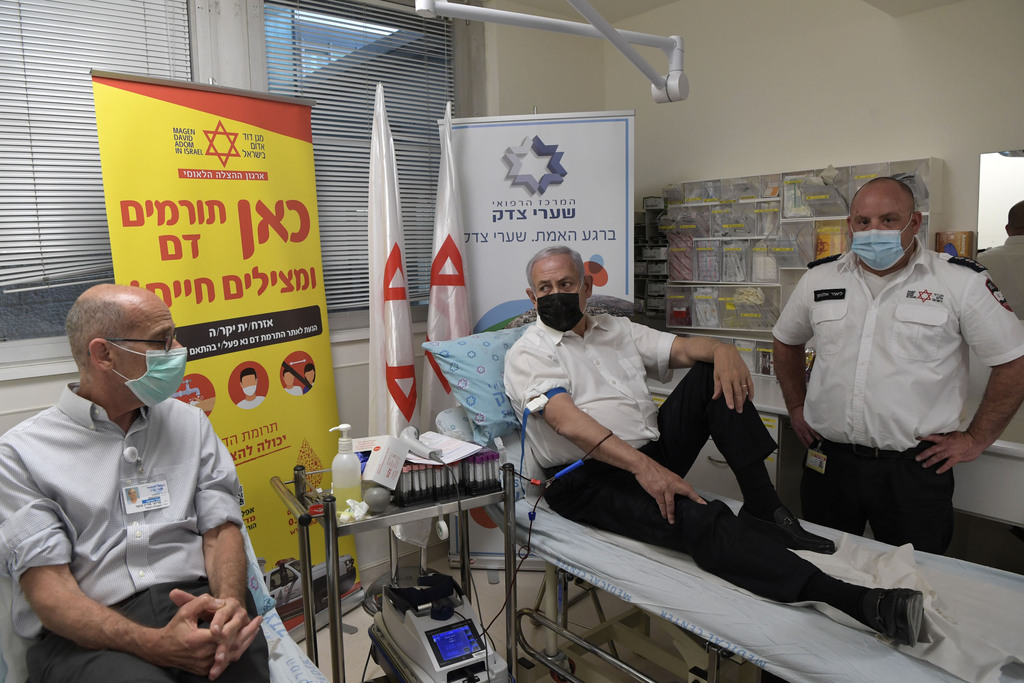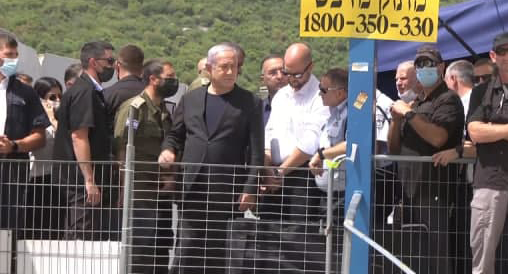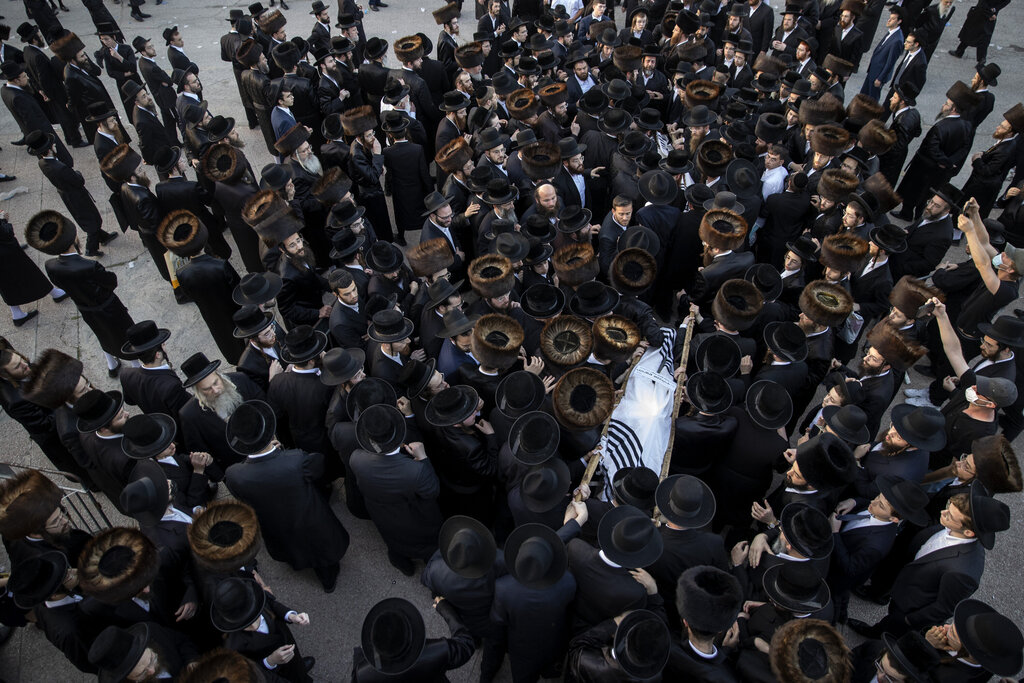Getting your Trinity Audio player ready...
The tragedy in which 45 people lost their lives on Mount Meron befell Israel with only four days left for Prime Minister Benjamin Netanyahu to form a government.
The question now remains whether he will seek an extension of the mandate as a result — a request that President Reuven Rivlin would decline according to most estimates in the political system.
3 View gallery


Prime Minister Benjamin Netanyahu donates blood for those injured in the Mount Meron crush
(Photo: GPO)
Establishing an independent commission of inquiry into the tragedy will also arise during government negotiations.
After police officials traded recriminations, the investigation was given to the Police Internal Investigations Department (PIID), with Attorney General Avichai Mandelblit ordering to not take statements from the officers who were at the scene as part of a preliminary probe.
During his visit to the scene of the disaster, Netanyahu promised to lead a "thorough, earnest and in-depth investigation to ensure that such a disaster does not happen again."
3 View gallery


Netanyahu and Public Security Minister Amir Ohana (center) visiting the scene of the Lag Baomer stampede in Mount Meron
(Photo: Moshe Mizrahi)
However, the prime minister did not promise an independent public inquiry which governments often prefer to avoid.
The government also has the option to launch a government inquiry, whose powers are much more limited. For example, a government inquiry cannot subpoena witnesses, unlike a public inquiry, unless expressly authorized to do so in a government decision. In both cases, the PIID investigation will be put to a halt.
Some of the victims in the tragic Lag BaOmer crush — the worst civilian disaster in Israel's history — were laid to rest before Shabbat. The Institute of Forensic Medicine in Abu Kabir, where the bodies were taken to, only managed to identify the bodies of 32 victims by the advent of Shabbat.
3 View gallery


The funeral procession of 14-year-old Nathan Neta Engelrad and 9-year-old Yehosha Engelrad — two brothers who perished in the Mount Meron crush
(Photo: Amit Shabi)
The institute said that it could not continue identifying and releasing the bodies during Shabbat due to an order from the chief rabbi of Israel.

